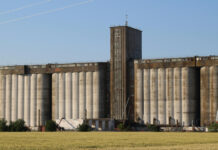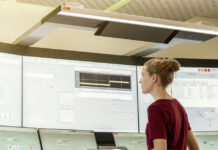By Lance Branquinho
SOUTH Africa’s wine processing industry has centuries of tradition, supported by continuous technological enhancement. But what are the trends and opportunities for winemakers and technical suppliers?
Although wine retains a sense of romanticised agriculture and gilded production, brands that wish to differentiate must embrace technology, says Niël Groenewald who runs wine industry consultancy, Dynamic Wine Solutions.
The technology trends shaping local winemaking are about aligning with customer tastes and using process technology to enhance brand attributes. For Groenewald, being aware of the traditional and contemporary market forces is essential.
“Alcohol reduction and removal are real challenges but reflect prevailing market dynamics. There’s a new generation of customers and more social awareness regarding reduced alcohol consumption. That’s created an additional process requirement for winemakers to manage alcohol reduction without compromising.”
Beyond the traditional reverse osmosis approach to alcohol reduction, greater precision and process harmonisation have seen winemakers embracing different approaches. Reducing alcohol consumption for lower alcohol content wines, or the non-alcohol offerings, while retaining taste profiles and desirable wine characteristics.
Groenewald recognises the diversity of approaches to alcohol reduction in wine production. “As the demand for lower and zero alcohol wines have increased, you’re seeing the value of alcohol reduction techniques with a ‘softer’ touch. Like the membrane type evaporative perstraction filtration method.”
“Achieving the desired alcohol reduction while retaining the wine’s integrity and taste profile, is about being aware of the latest technologies in alcohol reduction and integrating them into your production system.”
Fermentation is foundational to winemaking, and Groenewald sees the value of winter fermentation as a differentiator for brands and specific cultivars. This is especially valid for wines with global aspirations, where more than a novel label is required to capture educated and discerning wine consumers.
“Although it is capital intensive, requiring additional storage capacity, winter fermentation adds intrinsic value. There has been pioneering Australian and South African research into cryogenic production techniques by freezing grapes and juice as the feedstock, providing evidence for enhanced aromatic values.” Groenewald recognises the burden of additional refrigeration and icing resources required with winter fermentation, but the benefits are inarguable.
Winter fermentation techniques enrich the potential of white varietals, like Sauvignon Blanc. “The challenge with cryogenic production is scale and volume management. You effectively ferment as you bottle, which requires a lot of additional investment in tanking and storage capacity. But the aroma benefits for brands willing to invest in cryogenic processes allow them an advantage and marketable distinction in the market and consumers’ minds.”
The romance of oak barrels and winemakers with a terroir intuition will always be traits of the wine industry. For Groenewald, tradition and technology are complementary. “You must respond to the market trends and employ techniques and technologies that emphasise the excellence of what you are producing, without eroding the traditional mystique of viniculture.”















